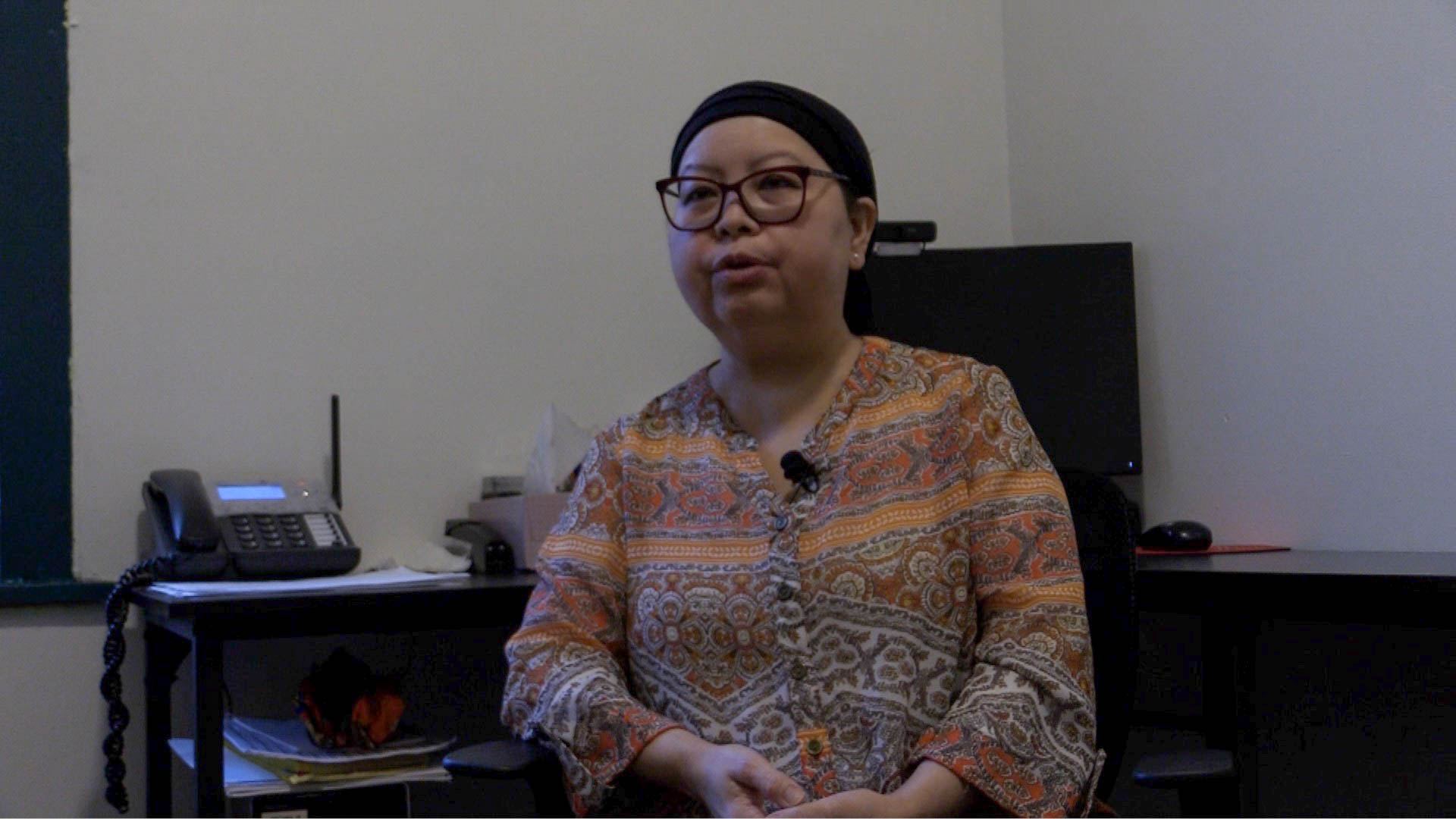
A pair of activists from El Centro Del Inmigrante, an organization that advocates for the DREAM Act, march toward Washington Square at a Wednesday rally. The act failed to pass the U.S. Senate the night before. Photo by Meredith Bennett-Smith
The air outside Judson Memorial Church was thick with the unmistakable warning signs of an approaching thunderstorm, but inside the sanctuary, 18-year old Monica Vega stood calmly behind the podium and boldly stated that she was breaking the law.
“I am undocumented,” the teenager said, “and I am not afraid to say it. And I am going to keep fighting for the DREAM Act until it gets passed.”
Vega spoke at a Wednesday evening rally organized by the New York Immigration Coalition.
The group held the rally to both protest the failure of the U.S. Senate to pass the Development, Relief and Education for Alien Minors Act, and to reaffirm its commitment to keep fighting until the act is signed into law. The DREAM Act would provide a way for undocumented students living in the U.S. before they are 15 to apply for legal resident status, providing they graduate from high school and go on to college or the military.
The rally, which was billed as a candlelight vigil by its organizers, took place in Union Square. An ethnically diverse group of men, women and children started lining up around 6 p.m., many of them carrying hand-lettered posters and signs.
Led by Christina Baal, an immigration advocate with the NYIC, the block-long demonstration headed down University Avenue toward Washington Square and Judson Memorial, with marchers shouting “Yes to Education, No Deportation,” and “What do we want? Dream Act! When do we want it? Now!”
A man carrying a sign exhorting passing motorists to “Honk for the DREAM Act” enjoyed sporadic success, while one pedestrian muttered, “Yeah, deport them,” under his breath as he walked past.
For many, the night was a rallying cry, as an array of speakers stood up one by one to exhort the crowd not to give up and to keep fighting.
Baal’s opening comments set the general tone for the evening.
“This is not over, our dreams are not over,” he said, gripping the podium. “A vote does not decide when dreams die — we do. And we’re here today to say that they’re not dying tonight, they did not die yesterday, and they are not dying anytime soon.”
Political wrangling — heightened due to the close proximity of the Nov. 2 congressional elections — ultimately blocked the National Defense Authorization Act, traditionally a bipartisan and fairly routine package. The act, which included $752 billion in military spending, also included the DREAM Act amendment and a repeal of the “don’t ask, don’t tell” policy barring gays from openly serving in the armed forces.
The act would have passed had Democrats secured four more votes in order to break a Republican filibuster.
Former Marine Domingo Diaz, who is gay, was discharged from the Corps after he was “outed.” Diaz is still not an American citizen, a status that would change under the DREAM Act’s servicemen provision. Diaz said he is also passionate about a repeal of the “don’t ask, don’t tell” policy.
“I can go to war,” Diaz said. “I can die protecting the rights and constitutional amendments of United States citizens, but I’m still not considered one. And I think it’s appalling, I think it’s ridiculous. … All these children want is a higher education. We want a chance to better ourselves, to be productive members of society, to be able to be taxpaying citizens and help repay the massive debt this country has given itself.”
A strong current of patriotism pervaded throughout the event. “We all love America,” Vega said at one point. “And we will love America, whether or not they pass the DREAM Act.”
Leticia Amanis, executive director of La Union, a community organizing group committed to the rights of immigrants, said many don’t recognize how valuable immigrants are.
“I think New York State recognizes more the value of immigrants,” Amanis said. “But probably if we were in another state, it would be another situation.”
